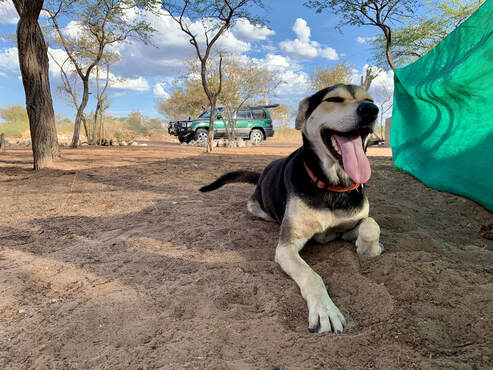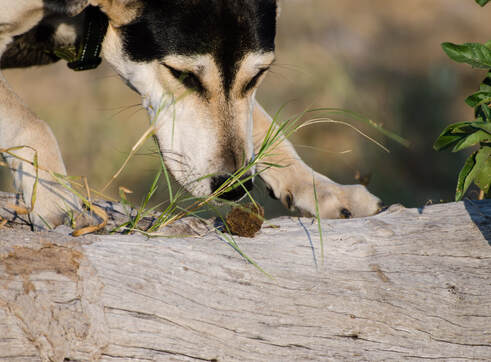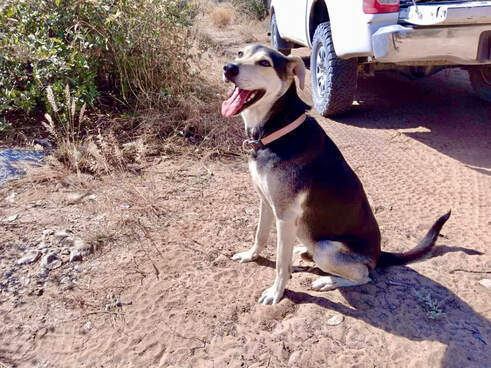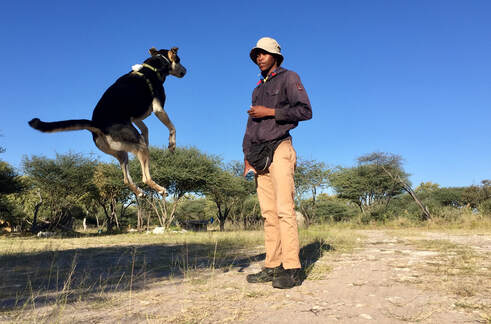With a smelling capacity 30 times that of a human, dogs have been used for detection work for decades, identifying everything from dangerous substances like drugs, illegal wildlife products, bombs and invasive species of plants and animals, to things that you want to find, like evidence of threatened and elusive species such as cheetahs. Finding cheetah scats (poop) helps us to get biological samples for our research and can help us to widen the distribution map for cheetahs if evidence is found in areas where cheetahs have not previously been known to exist. Cheetah scat detection dogs have been successfully trained before, but not utilizing local breeds of dogs and we were intrigued from the success of our LGD efforts to know what else our indigenous dogs were capable of! We knew that being able to train our own scat detection dog would not only mean we had that skill available to us all year round and at a much cheaper rate, but that the local “Tswana” dogs would be more resilient to the local heat and environment in which they’d be working, helping to make them more efficient. In that fateful year, CCB began the complex process of training Loeto to detect cheetah scat, the first ever local-breed dog to be trained by an NGO for such purposes.
Initially Loeto showed great promise in his mission to find cheetah scats. Our research team worked long and hard placing cheetah scats around our farm and training Loeto to sniff them out. Soon he developed a bad habit of trying to eat the poop that he found, rather than simply sitting to announce that he had found it. He also struggled to distinguish between the cheetah scats and the very similar leopard scats that we placed around the farm. Despite our team’s most valiant efforts, our staff had to come to terms with the realization that perhaps Loeto wasn’t going to have a fruitful career as a cheetah detection dog. He received an early retirement package from CCB and settled in as our Ghanzi Camp’s new guard dog, staff personal trainer and much-loved companion.
The Ghanzi staff got busy, asking around Ghanzi town (which is 20km from our farm) and all of our known contacts in the area if anyone had seen him. They placed wanted posters up around town and searched high and low. Weeks turned into months and there had been no sign of him. A few false leads were investigated but it was never Loeto. All hope began to fade of us ever being reunited with him again.
Then, on the 23rd May, four long months after his disappearance, the Ghanzi team received a call from a man who had found a dog fitting Loeto’s description near Ghanzi town’s nightclub and he kept him safe until our staff arrived to confirm whether it was him. To our absolute delight our team confirmed that it was indeed our beloved Loeto and he was in great condition, despite his long absence. We still have no insight as to what he had been up to for those long four months or how he went missing in the first place, but we are so thankful to have him back safe and sound at our Ghanzi camp. Upon his return, we reflected wryly that he had certainly been named appropriately, for in Setswana “Loeto” literally translates to “journey”.





 RSS Feed
RSS Feed
